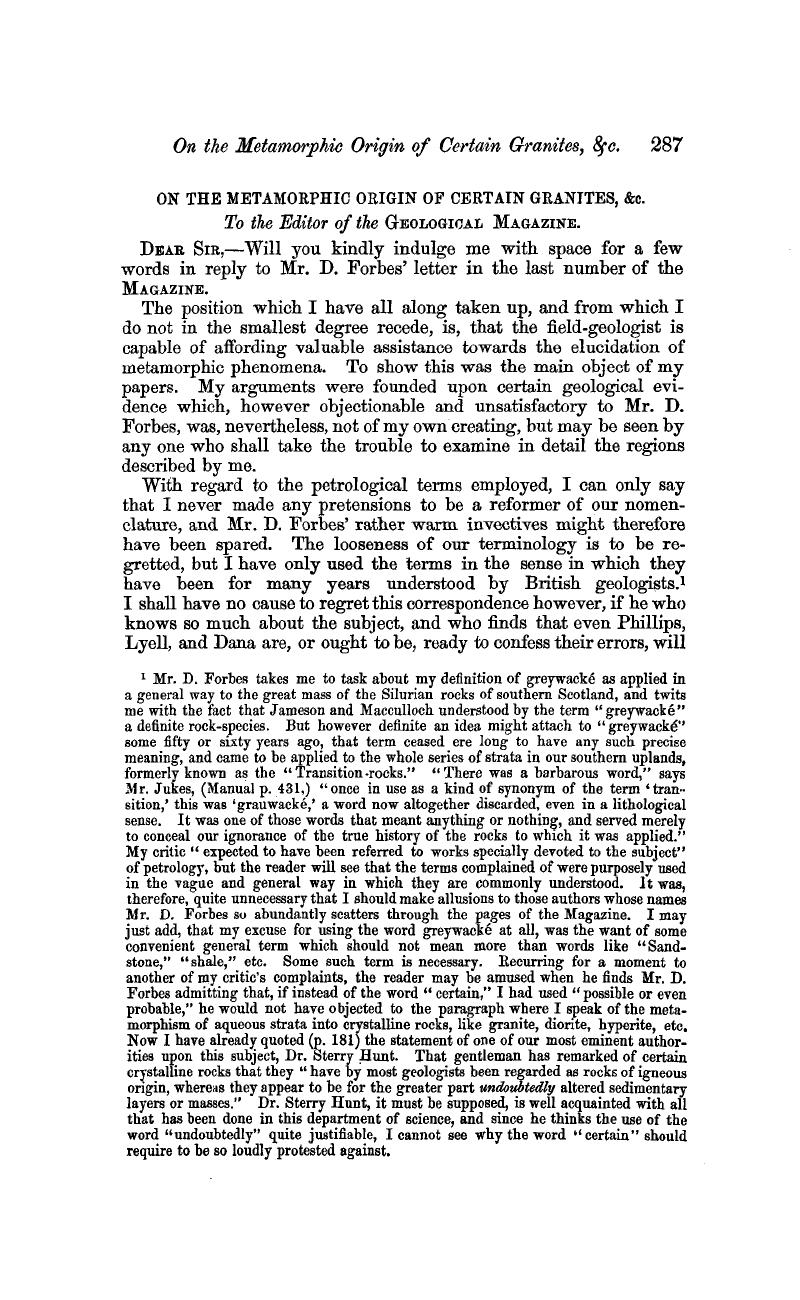No CrossRef data available.
Article contents
On the Metamorphic Origin of Certain Granites, &c
Published online by Cambridge University Press: 01 May 2009
Abstract

- Type
- Correspondence
- Information
- Copyright
- Copyright © Cambridge University Press 1867
References
page 287 note 1 Mr. D. Forbes takes me to task about my definition of greywacké as applied in a general way to the great mass of the Silurian rocks of southern Scotland, and twits me with the fact that Jameson and Macculloch understood by the term “greywacké” a definite rock-species. But however definite an idea might attach to “greywacké” some fifty or sixty years ago, that term ceased ere long to have any such precise meaning, and came to be applied to the whole series of strata in our southern uplands, formerly known as the “Transition-rocks.” “There was a barbarous word,” says Mr. Jukes, (Manual p. 431,) “once in use as a kind of synonym of the term ‘transition,’ this was ‘grauwacke,’ a word now altogether discarded, even in a lithological sense. It was one of those words that meant anything or nothing, and served merely to conceal our ignorance of the true history of the rocks to which it was applied.” My critic “expected to have been referred to works specially devoted to the subject” of petrology, but the reader will see that the terms complained of were purposely used in the vague and general way in which they are commonly understood. It was, therefore, quite unnecessary that I should make allusions to those authors whose names Mr. D. Forbes so abundantly scatters through the pages of the Magazine. I may just add, that my excuse for using the word greywacke at all, was the want of some convenient general term which should not mean more than words like “Sandstone,” “shale,” etc. Some such term is necessary. Recurring for a moment to another of my critic's complaints, the reader may be amused when he finds Mr. D. Forbes admitting that, if instead of the word “certain,” I had used “possible or even probable,” he would not have objected to the paragraph where I speak of the metamorphism of aqueous strata into crystalline rocks, like granite, diorite, hyperite, etc. Now I have already quoted (p. 181) the statement of one of our most eminent authorities upon this subject, Dr. Sterry Hunt. That gentleman has remarked of certain crystalline rocks that they “have by most geologists been regarded as rocks of igneous origin, whereas they appear to be for the greater part undoubtedly altered sedimentary layers or masses.” Dr. Sterry Hunt, it must be supposed, is well acquainted with all that has been done in this department of science, and since he thinks the use of the word “undoubtedly” quite justifiable, I cannot see why the word “certain” should require to be so loudly protested against.
page 288 note 1 On the absorption and dialytic separation of gases by colloid septa.


